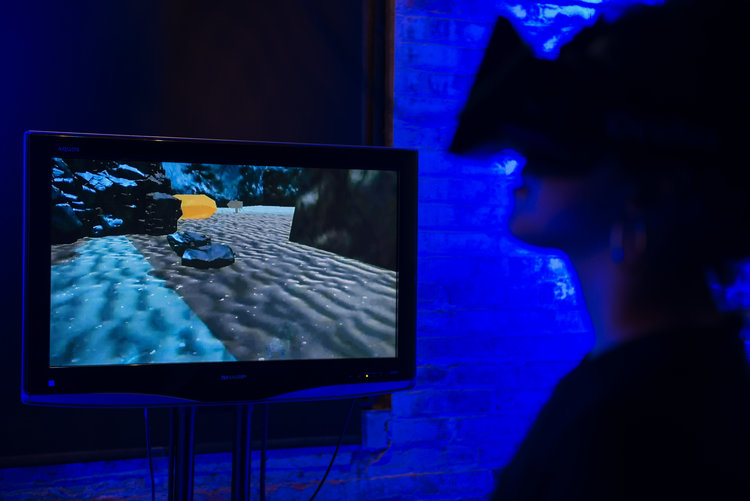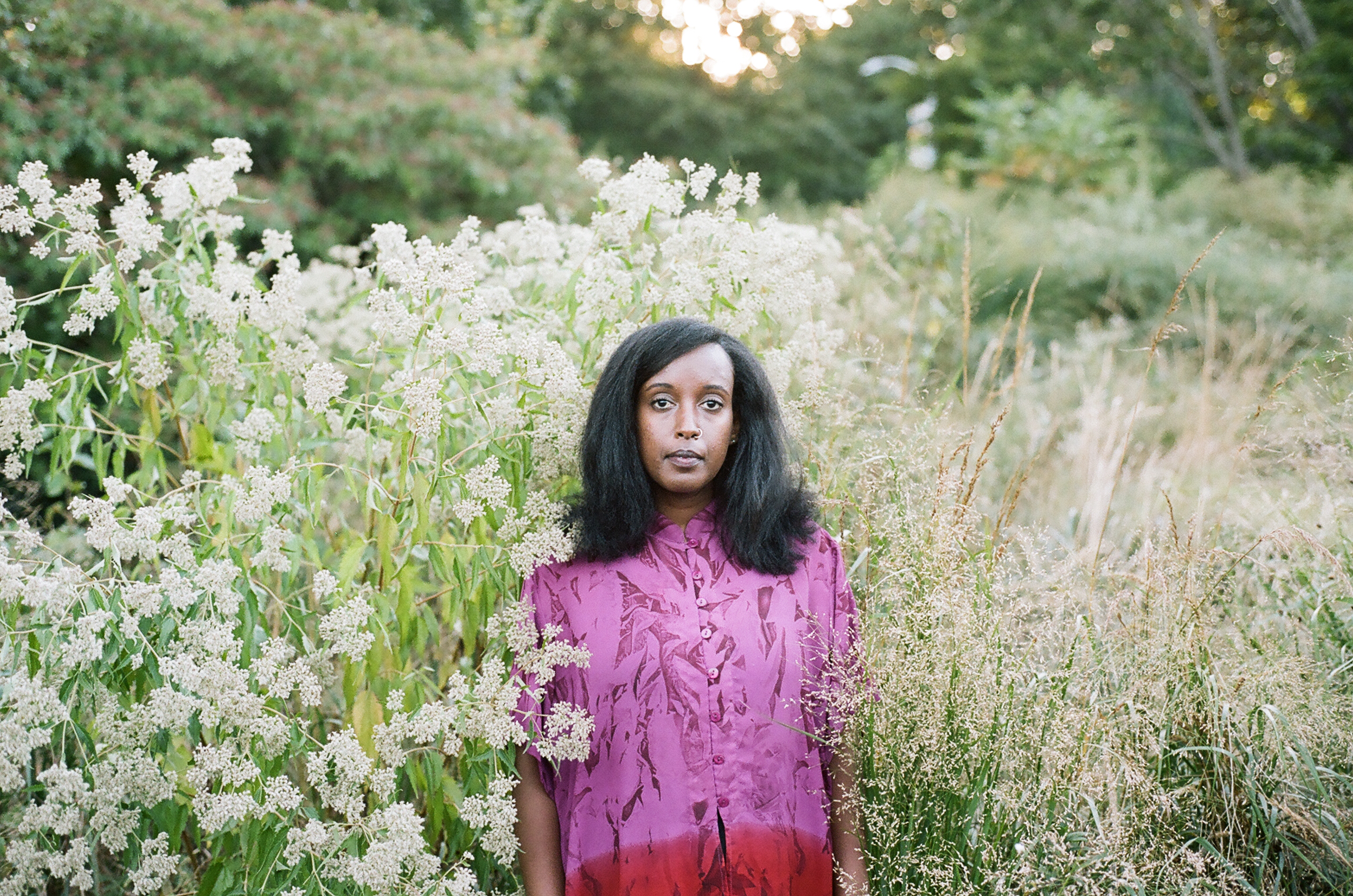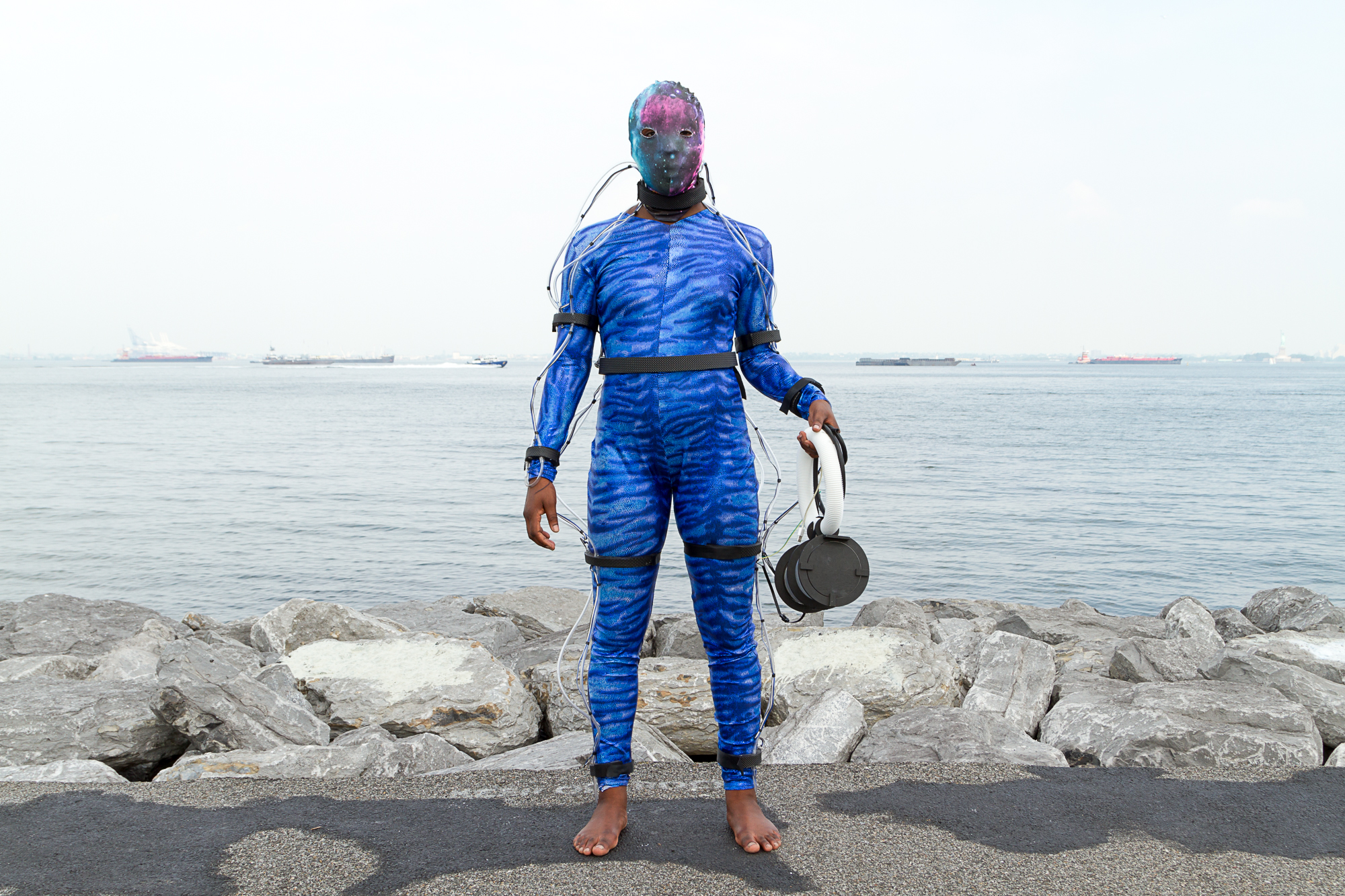As an artist and a researcher, Salome Asega‘s practice is a celebration of multivocality and dissensus. The relationship between her practice as an artist, and her roles as a researcher and teacher, is an interconnected one. Each of these aspects inform and filter into one another. Asega explains that this connection comes from their collective ability to offer useful methods for igniting questions and picking through ideas. I interviewed Asega to find out more about her work.
Could you please share more about your creative and academic background?
I spent a year after finishing my undergrad degree tinkering with hardware and making interactive visuals for my friends in performance and music. This eventually brought me to a community of artists who were also working with technology in exploratory ways. I did an MFA at Parsons at The New School in Design and Technology, where I’m now a faculty member.
I also come from a family of science and math people. When my family bought our first computer, my uncle, who was studying computer science at the time, used to mail me floppy discs of games he was working on. I don’t think I understood this as a creative technology practice at the time, but I like to thank him now for jump starting my infatuation with all things digital.
In your bio you describe your practice as one that “celebrates dissensus and multivocality”. Could you please unpack why this is the foundation of your practice, and how you filter this through in your textual and visual projects?
So many of my projects involve a collaborative or participatory process, which is grounded in conversations where we are making certain conceptual or design decisions. This very messy, messy process is sometimes rendered invisible when what’s in an exhibition is a final art object. When I say I celebrate multivocality or dissensus/consensus, I’m saying I value the process of working in community and I also acknowledge that it’s not easy.

Having looked through your ongoing project, POSSESSION and your recent participation in the group exhibition To Break The Ocean, it appears that water is of particular interest to you, specifically the historical and cultural significance of water and its connection to Blackness and the African Diaspora. Could you please share more about your interest in this, and how you unpack this in POSSESSION and To Break The Ocean?
I grew up in the desert, so I think the water is a natural draw for me. Beyond that, I’m curious about the ways the ocean and water show up in visual representations of time like how the ocean can represent the kalunga line in West African cosmologies. The ocean then becomes the split between cycles of past, present, and future, and also different dimensions– real world, spirit world. There is a speculative lens in much of my work and water presents itself as a material to do this thinking.
Your participation in the group exhibition To Break The Ocean is with Iyapo Repository. Could you please share more about the idea behind this resource library and how it has evolved since its inception?
Ayodamola Okunseinde and I started Iyapo Repository in 2016 during a residency with Eyebeam, an organization here in New York. The project has so many entry points for us. We were thinking a lot about the rising number of e-waste sites on the continent and the ways we’ve seen folks repurpose those materials to make something new and beautiful. We were also thinking about the places we show up in mainstream science fiction narratives, and black folks are primarily shown as extras if they’re even shown at all. We were also thinking about access and literacy to digital tools, and how we could leverage our access to certain institutional spaces to bring resources out. Somehow we combed all these questions and concerns together and developed a pop-up resource library and workshop series that asks participants to build future artifacts with us using hardware, virtual reality, and some digital fabrication techniques. It’s been extremely energizing to take up space in speculative futures with other black people.
Iyapo Repository focuses on physical and digital “artifacts”. Why was it important for you to include both kinds of artefacts? And how have you collated these to ensure their value and meaning to not get stripped away when placed in the context of a collection/archive?
Our inclusion to have both physical and digital artifacts in the repository was to ensure we were designing for multiple methods of engagement. We can dream up and create artifacts with our participants remotely, but also also in real life. The engagements, conversations, and creative exchanges are what ultimately make up this project. I’m interested in getting folks to speculate and design collectively.
When we show the artifacts in an exhibition, we include the original manuscript drawings and writing done in the workshop to provide contextual evidence for the final object. These documents are signed by our participants to make sure they are given credit as the archivist who “discovered” the artifact.
Could you please share more about the Iyapo Repository and how participants become archivists influenced by how they imagine the future? Who participates in these workshops?
We partner with museums, universities, festivals, community organizations, and after school programs to host us. I’m always thinking about how we can make unlikely partnerships to redistribute resources from one place to another. So if we’re working in a larger institution I want to make sure we’re also partnering with a community organization who can bring in their networks to participate in the project with us and take ownership of Iyapo Repository in that iteration.

The project Level Up: The Real Harlem Shake is also interesting in its use of video game language and interaction. Please share more about the choice to develop this as a video game? Is this a kind of commentary on cultural appropriation, digital cross-dressing or identity tourism?
In 2012, DJ Baur came out with a song called “Harlem Shake” that prompted people to make viral videos of them and a group of friends shaking wildly. Soon these videos took the top hit position over videos of the original Harlem Shake meaning you’d have to do some deep internet digging to find the original dance. I worked with curator Ali Rosa-Salas and dancer Chrybaby Cozie to develop a project that could counter this cultural erasure and assert the Harlem Shake as a dance form that is studied, learned, and passed off to others.
You are also the co-host of speculative talk show Hyperopia: 20/30 Vision. Please share more about the show and how it connects to the other work that you do?
Hyperopia: 20/30 Vision is a radio show Carl Chen (Lasik) and I (ConVex) started in 2015 at bel-air radio. Derek Schultz (DJ D) and Leila Tamari (LENZ) joined shortly after. The show originally was a way for us to ask experts to speculate the near future of their fields. Each episode, we want to imagine some essential element of a future — alternative economies, reproductive health, sustainable architecture, etc — and the ways technology creates opportunities or challenges towards the visioning. The format changed slightly for us to also have conversations as a team about our anxieties and optimisms around technological development presently. This show is another way think through ideas of futurity collectively.
What are you working on at the moment?
I’m currently a Technology Fellow at the Ford Foundation evaluating the arts and cultural strategies through technology lens. I’m spending the summer writing and reading in preparation for new projects this fall.
Is there anything you have lined up for this year that you would like to share with our readers?
I have a residency with Pioneer Works in Brooklyn lined up for this fall. I’m also working with Geng (PTP) to produce a performance for Abrons Art Center at St Augustine’s Church in November. We’re pulling a group of artists together to think through the architectural history of this Church that tells an early history of segregation in New York.


